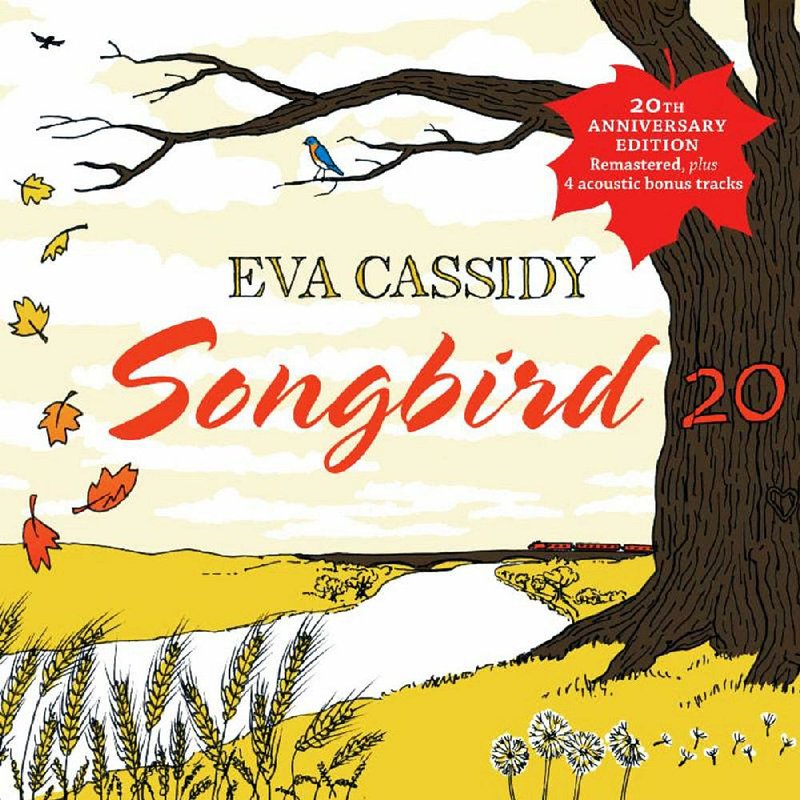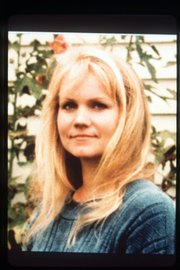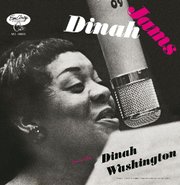Eva Cassidy's Songbird sounds as fresh, honest and vital as it did 20 years ago.
One of the finest voices in popular music, Cassidy died before most of us ever heard her. She made a name for herself in Washington clubs and released two albums before her death from melanoma in 1996 at age 33.
Two years later, Songbird -- compiled from her solo albums Live at Blues Alley and Eva by Heart, and her duet album with Chuck Brown -- was released. Songbird's worldwide sales have topped 5 million; Cassidy's total sales, which include several posthumous releases, have surpassed 10 million.
For those of us who hadn't heard Cassidy, Songbird was a revelation. She was an astounding vocalist with a bell-like clarity and purity, creative and expressive phrasing and soulful intensity.
Most importantly, Cassidy sang from the heart. Her voice brought unexpected, sometimes unexplored depths of feeling to the songs she chose.
A 20th-anniversary edition, Songbird 20 (Blix Street), has been released with new artwork and additional acoustic tracks of four of the original album's songs -- Christine McVie's "Songbird," "Wade in the Water," Curtis Mayfield's anthemic "People Get Ready" and the classic "Autumn Leaves." The acoustic versions first appeared on the Simply Eva album.
It may seem a cliche to say Cassidy could sing anything, but Songbird provides ample evidence. From her rafters-rattling version of the black spiritual "Wade in the Water" and a tender and warm treatment of Sting's "Fields of Gold" to a melancholic and jazzy "Autumn Leaves," she sang with skill, passion and conviction.
But best of all may be her aching, delicate reinvention of Judy Garland's "Over the Rainbow" from The Wizard of Oz. It was that song that made Cassidy a chart-topping artist in the United Kingdom, propelling Songbird to No. 1 and 1 million in sales.
As People magazine wrote July 20, 1998: "Whether in jazz, folk, or inspirational music, Cassidy's potential was huge, and this album stands as a testament to popular music's loss."
Truly.
. . .
Dinah Washington would have understood Eva Cassidy's eclectic musical nature.
"I can sing anything, anything at all," Washington once said. She didn't just say it -- she proved it as she sang the truth as she felt it.
Washington, who died in 1963 at age 39, developed a very personal approach to singing that was comfortable and expressive in a variety of musical styles: soul, jazz, blues, easy-on-the-ears pop. Her bluesy voice was huge and had a striking clarity, perfect diction and eloquent phrasing. Early in her career, she called herself "queen of the blues." In the 1950s, she would become known as "Queen of the Juke Boxes" because of her many rhythm-and-blues hits, such as "Evil Gal Blues."
After Washington signed with the Emarcy label in the early 1950s, she recorded five of her finest albums, showing her prowess in jazz, blues and pop. The quintet has been gathered into a boxed set titled The Divine Miss Dinah (Verve), available on CD and vinyl.
The set includes 1954's After Hours With Miss D, with the great horn players Clark Terry and Eddie "Lockjaw" Davis. It includes a haunting "Love for Sale."
The best of the five is Dinah Jams, an album that bristles with energy and excitement. A live recording in front of a studio audience, it has an improvisational vibe enriched by the brilliant musicianship of bebop trumpet legend Clifford Brown. A subtle, romantic aura suffuses 1955's For Those in Love. The small ensemble that backs Washington includes pianist Wynton Kelly and drummer Jimmy Cobb, who would later play with Miles Davis during his Kind of Blue period. It includes Washington's hit "Blue Gardenia" and a savvy "My Old Flame."
Washington throws another curve with 1957's The Swingin' Miss D, which puts the singer in an orchestral setting with arranger/conductor Quincy Jones. The album is filled with jumpin' big band swing and heart-aching ballads. It's a good match; the collaboration brings out her best.
In 1959, Washington's career took yet another turn. She hit the Top 10 on the pop charts with "What a Diff'rence a Day Makes," which became the title song of an album. Working with a string orchestra, the singer brought a new life to standards such as "I Thought About You" and "Cry Me a River." Pianist Joe Zawinul (founder of Weather Report) is among the superb musicians on this set.
(Adding to Washington's eclecticism, she recorded Top 10 duets with singer Brook Benton of "A Rainy Night in Georgia" fame in the early 1960s -- "Baby [You've Got What It Takes]" and "A Rockin' Good Way".)
Washington, a major influence on singers such as Nancy Wilson, Aretha Franklin and Esther Phillips, left her mark on American music.
Divine Dinah, indeed.
Email:
ewidner@arkansasonline.com
Style on 04/15/2018


